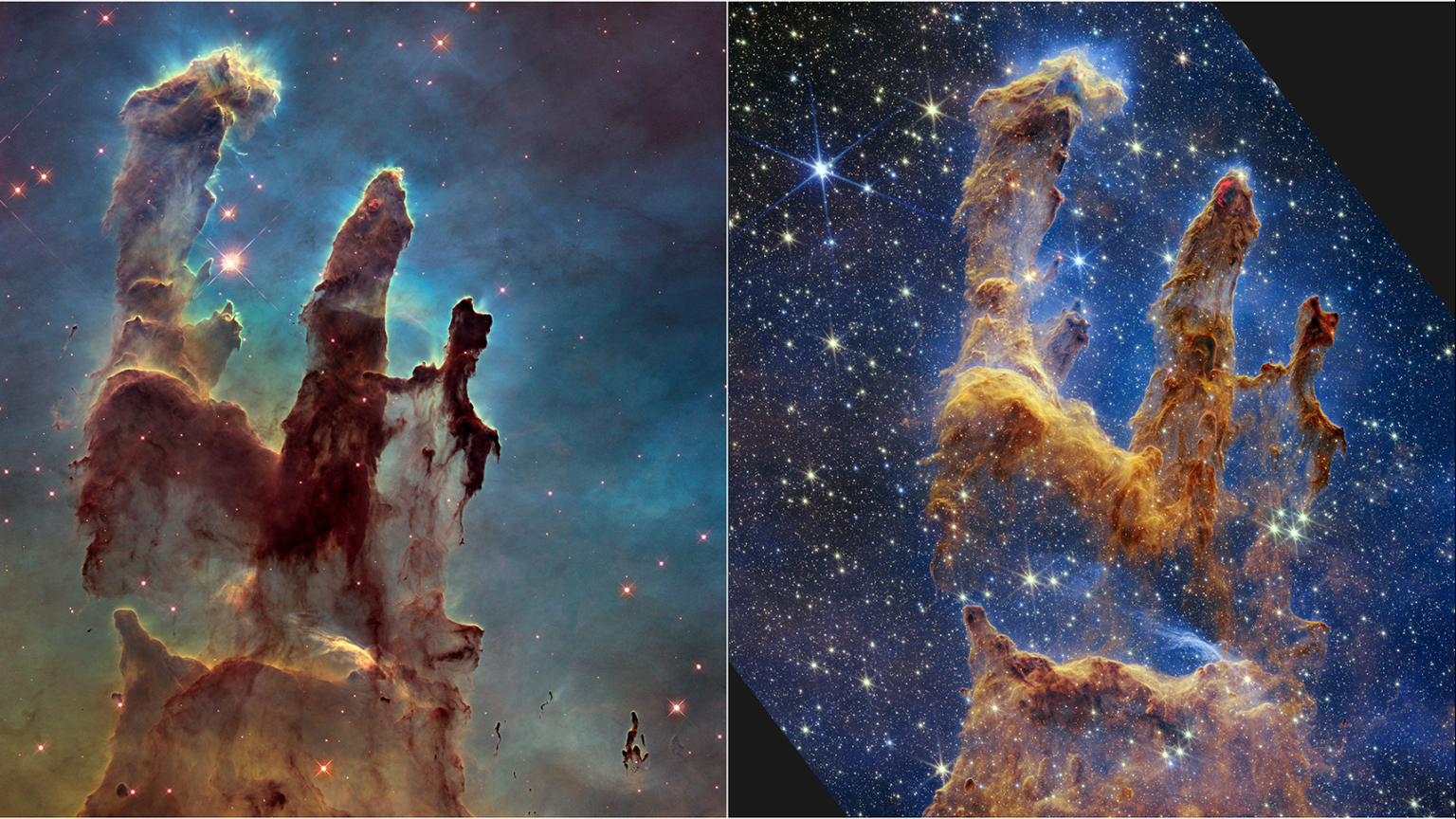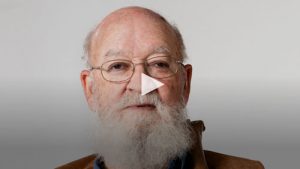- Daniel Dennett’s four biggest ideas in philosophy;
- Why we spend money to explore the universe;
- Washington Post with images of the eclipse;
- And SF author CJ Cherryh on how so many ‘people on the street’ have no idea what makes a solar eclipse.
Let’s move back into the world of rationality and reason and reality, mostly. Starting with another piece about the late Daniel Dennett. [Edit 19 Apr 2024: He died today, actually; why did I think he had died back on the 10th?]
Big Think, The 4 biggest ideas in philosophy, with legend Daniel Dennett, subtitled ““Forget about essences.” Philosopher Daniel Dennett on how modern-day philosophers should be more collaborative with scientists if they want to make revolutionary developments in their fields.”
Because the great philosophical quandaries are being solved by science. Both philosophy and science should be working toward the same goal. This is an 11-minute video, which I haven’t listened to; I’ll just quote the text lead-in.
Philosophy and science haven’t always gone hand-in-hand. Here’s why that should change.
Daniel Dennett, an Emeritus Professor from Tufts University and prolific author, provides an overview of his work at the intersection of philosophy and science. Many of today’s philosophers are too isolated in their pursuits, he explains, as they dedicate their intellect purely to age-old philosophical ideas without considering the advancements of modern science. If our understanding of reality evolves with every new scientific breakthrough, shouldn’t philosophical thought develop alongside it?
In just 11 minutes, Dennett outlines the four eras he evolved through on his own journey as a philosopher: classical philosophy, evolutionary theory, memetic theory, and the intentional stance. Each stage added depth to his perspective and understanding, enriching his personal journey as a philosopher and his analysis of how philosophy, when used correctly, can help us comprehend human behavior.
Not precisely the same as, but overlaps, David Deutsch’s “four strands of explanation” in his The Fabric of Reality (review here).
\\
Why spend money studying the universe, when there are homeless people? (A perennial question, in many forms.)

Big Think, Ethan Siegel, 10 Apr 2024: Why humanity must invest in exploring the Universe, subtitled “There are so many problems, all across planet Earth, that harm and threaten humanity. Why invest in researching the Universe?”
The photo shows views of the so-called “Pillars of Creation” as viewed by Hubble, and then by the JWST. (I’ve always objected to the name; it’s anthropomorphic, and relies on turning the photo so those gas extensions appear to extend upwards, like “pillars.” Another piece of evidence about how human psychology imposes its values upon the universe.)
Key Takeaways
• With so many problems in the world, from war to poverty to hunger to disease and much more, investing in exploring the Universe can sometimes feel frivolous. • And yet, the value we get from engaging in pursuits that take us beyond our Earthly concerns can sometimes far outstrip anything we’d gain from diverting resources away from those endeavors. • It’s a question that’s been asked repeatedly over the course of many centuries, but the answer is always the same: human civilization is a long game. We mustn’t shortchange the future.
Opening,
It’s no secret that there is a seemingly endless string of problems to address in the world. You don’t have to look hard to find people suffering from all sorts of maladies: from illness to injustice, from war to famine, from poverty to pollution. There are some major problems facing humanity in the 21st century, and they’re all going to require an enormous investment of our collective resources if we want to solve them. From climate change to global pandemics to the energy and water crises and more, none of these problems are going to solve themselves. If they’re to be solved at all, it’s going to come down to humanity’s collective actions.
This has always been true, and I think the answer comes down to tribal vs global thinking. Why didn’t King Ferdinand and Queen Isabella spend their money on the poor, rather than financing Columbus’ expedition? It’s the same question asked throughout history. Why spend money on NASA when there are poor people sleeping on the street? Because spending money on bigger things is an investment, with potentially huge payoffs. Oddly modern Republicans, so focused on business, seem not to understand this when it comes to scientific investments.
\\
Two more items tonight, about the eclipse.

The moon is round; its shadow on the Earth is round, and as the moon continues in its orbit, its shadow moves quickly over the Earth.
Washington Post, 10 Apr 2024: Unique views of the solar eclipse you may have missed, subtitled “Check out this collection of photos and videos from space, the ground and the air between”
Lots of gorgeous photos.
\\\
And this comment by sf writer CJ Cherry on Facebook:
What is really, really scary is how many people interviewed ‘on the street’ have no idea what makes a solar eclipse. They imagine random planets wandering between us and the sun or the sun skipping over the moon…
Why are they so confused?
Because religious nuts got up in arms to ban the teaching of astronomy in public schools.
Why?
Because stars can be more than 5000 light years away, and this challenges their religion.
You know. Creation of the earth. Adam’s rib. And all that.
Literalists abound in our population and get all wheezy when you say 5000 years. They desperately don’t want their kids hearing that. They’re organized. They’re always on the alert. And they number about 13,000,000 people.
How do I know? I worked hard trying to get an astronomy unit taught in general science in Oklahoma City. I taught ancient history—and I got by teaching about Gobekli Tepe—but I scared some kids. I didn’t get any blow-back. But that was because the course didn’t rouse any advance alarm like that scary word ‘astronomy.’
I imagine right now the whole discussion around the JWST (the big scope) is verboten in schools in the south and wherever that group has any clout.
Is this true? Do “religious nuts” in the South discourage the teaching of astronomy, because its implications would conflict Biblical creationism? It’s plausible, but actually, I doubt that astronomy, per se, is taught in public schools, through high school, at all, unless perhaps in some elective course. I took a basic astronomy course in college, but by sixth or seventh grade, I’d already learned the basics on my own.






